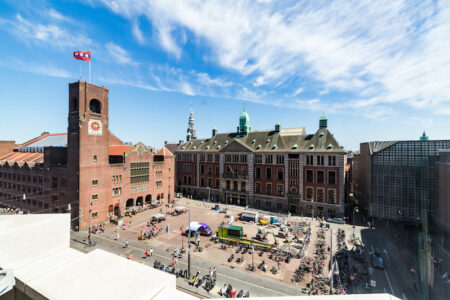Special focus: Artisan confectioners battle major challenges of rising costs of operating

Artisan chocolate and confectionery segments around the world has been impacted just as much as any other segment of the industry. As Neill Barston discovers speaking to two key chocolatiers, Britain’s Paul A Young, and US-based William Poole, major challenges are having a concerning effect on the industry
The artisan chocolate and wider confectionery market have fared with considerable resilience over the past decade. Its growth on a global scale has been driven by a consumer desire to reach out and experience new tastes and flavours that have been driven by wider culinary trends.
This is reflected by the continued rise of brands within the niche, particularly within the UK, that include the likes of Devon’s Willie’s Cacao, Pump Street Bakery in Suffolk, and Russell & Atwell – with the latter causing quite a stir with a focus on delivering fresh chocolate, backed by the BBC’s Dragon’s Den investment. While the continued rise of such enterprises has been an encouraging sign from an innovation standpoint, there remain some notable market challenges within the past couple of years.
The most lingering of these is the significant rise in production costs brought about in part, at least, by Brexit trading complexities with mainland Europe that has pushed up ingredients prices significantly, including cocoa having risen in value to levels not reportedly seen for decades within global commodity platforms. Consequently, with consumer confidence remaining subdued in many international markets, it is in fact the premium and luxury end of the confectionery market that is unfortunately feeling the squeeze amid the ongoing cost of living crisis.
Impact on industry
The steep rise in energy costs is impacting on the industry, and as renowned UK chocolatier Paul A Young says, the high costs of renewing a property lease in central London were among his decisions to close his much-admired confectionery store in Islington this month. “It’s sad to be closing, but it’s also exciting about the future,” notes Paul of the situation, as he explained that the business, which has specialised in the production of fresh luxury chocolates, had continued despite the major impact on the retail sector for more than two years during the global pandemic period.

He explains there were several factors that had influenced his decision, including major increases in business rents, as well as hikes in ingredients costs including chocolate and sugar, which have severely affected the confectionery trade around the world, making it significantly more expensive to trade as an independent company. “I’ll still be in the industry, but just in a different way,” says Paul, who had strongly focused on building relationships across the industry, and is intent on finding a fresh challenge within the sector that he has been remarkably passionate about.
“It’s been incredible. When you’re in it, you don’t necessarily see all of your success of how you have influenced people. I hadn’t realised until making our announcement to close, the influence I have had on other chocolatiers and chocolate companies around the world, as we started when there were no artisan chocolatiers about, 17 and a half years ago. “For me, it’s bittersweet, as on reflection, I worked too hard, for too long. However, that allowed us to open more stores and reach further, innovate and train and employ lots of people, and do lots of exciting things through sheer hard work.
That’s a decision that was made,” he explains of his reasoning for closing his doors for the final time, which he is doing with a sense of belief that his skills will soon enough find a natural confectionery home. Reflecting on his career to date, he explains that there have been numerous highs and lows during the past two decades in the sector, yet the past two years have been especially testing for his business, which he stressed has remained afloat despite a cocktail of challenges. “Nothing has gone back to the way it was before the pandemic – people don’t necessarily need a physical shop – they can stock their Instagram or online shop, and can restock again another day next week, they don’t need to hold stock all the time, it’s a new way of doing retail. “If you need to sell 100 boxes of his much-admired confectionery store in Islington this month.

“It’s sad to be closing, but it’s also exciting about the future,” notes Paul of the situation, as he explained that the business, which has specialised in the production of fresh luxury chocolates, had continued despite the major impact on the retail sector for more than two years during the global pandemic period. He explains there were several factors that had influenced his decision, including major increases in business rents, as well as hikes in ingredients costs including chocolate and sugar, which have severely affected the confectionery trade around the world, making it significantly more expensive to trade as an independent company. “I’ll still be in the industry, but just in a different way,” says Paul, who had strongly focused on building relationships across the industry, and is intent on finding a fresh challenge within the sector that he has been remarkably passionate about.
“It’s been incredible. When you’re in it, you don’t necessarily see all of your success of how you have influenced people. I hadn’t realised until making our announcement to close, the influence I have had on other chocolatiers and chocolate companies around the world, as we started when there were no artisan chocolatiers about, 17 and a half years ago. “For me, it’s bittersweet, as on reflection, I worked too hard, for too long. However, that allowed us to open more stores and reach further, innovate and train and employ lots of people, and do lots of exciting things through sheer hard work. That’s a decision that was made,” he explains of his reasoning for closing his doors for the final time, which he is doing with a sense of belief that his skills will soon enough find a natural confectionery home.
Reflecting on his career to date, he explains that there have been numerous highs and lows during the past two decades in the sector, yet the past two years have been especially testing for his business, which he stressed has remained afloat despite a cocktail of challenges. “Nothing has gone back to the way it was before the pandemic – people don’t necessarily need a physical shop – they can stock their Instagram or online shop, and can restock again another day next week, they don’t need to hold stock all the time, it’s a new way of doing retail.
“If you need to sell 100 boxes of chocolates a week, then you make that many, post them all out and there’s no wastage. That’s the biggest change – cake companies, and chocolate companies are doing it, and I think it’s brilliant. “It’s allowing people to have their own businesses and reach a lot of people, without the ties and massive financial drain of a long leases on shops, although it’s lovely to have such boutique stores.
It’s just very, very expensive to have them at the moment,” noted the chocolatier, who asserts that rents being charged in London are “insane and unjustified,” especially given the fact many such landlords actually own the respective buildings outright, and could manage less hefty prices in return for long-term rental deals.
“Many new business just can’t afford to put down six months’ rates, then all the huge costs of gas and electricity, as well as staff costs. It’s eye watering, but it’s the dream of a lot of people to have shops, which is part of our nation,” added Paul, who adds a radical shift in policy is needed to enable emerging businesses in particular to start up on manageable operating terms. As he notes, he one of the most recent examples of a renewed vision for our high streets was Mary Portas – “she understood what was happening years ago” adds Paul, who observes that many retail areas are now being overtaken by coffee stores, with retail environments rapidly dwindling due to the lack of business support available.
However, he stresses that the decision to close the story was purely personal, and that after 17 years the company was in a strong enough position to see off the after effects of the pandemic. But with the lease due to expire on his site, he says he “just felt the time was right” to try something different within the industry.
Stateside artisans
Across the other side of the Atlantic, in the US, the artisan confectionery and chocolate movement has continued to gather pace in recent years. It is supported by the Fine Chocolate Industry Association, that has provided a platform for smaller and independent operations in the sector With the US recently posting its most buoyant confectionery sales ever, with a market valued at over $42 billion in total, it seems that in spite of background supply chain tests, there’s an underlying strength which runs right across the sector.
As US chocolatier William Poole, based in New Hampshire, reveals, he’s determined to deliver his vision for furthering his career in what is traditionally an extremely competitive industry requiring plenty of skill, and also a degree of fortune in light of wider market challenges. He says: “To reflect on the past two years of business, opening a new production space and retail shop during Covid-19 was an amazing feat, thankfully I have a 20 plus year career, starting this company was more of a physical move under very unique, global circumstances. “Business is up from the prior year, and our customers look forward to new and seasonal offerings.

There is an immense (near) hedonism in producing craft chocolate, developing each batch and seeing the enjoyment in the customers eyes as they experience it for the first time.”
He notes craft chocolate makers often prioritise transparency in their sourcing, production methods, and ethical practices. This emphasis on ethical sourcing adds an additional layer of satisfaction for consumers who value responsible consumption. “My biggest challenges are the conversations with customers on the values in the differences of well-sourced chocolate, ingredient choices (eliminating unnecessary colourants, reducing sugar) and bio-friendly packaging over commodity manufactured chocolate/candy and confectionery, as there (still) seems to be a lack of information exchange from company to consumer.” He enthuses that he is presently in the process of developing programmes to engage with his local community by hosting events, workshops, and tastings.
These activities provide opportunities for consumers to learn about the chocolate-making process, explore flavour profiles, and gain a deeper appreciation for the craftsmanship involved. As he states, the company has also trained its sights on extending its product range including expanding its truffle line to include dairy-free options into 2024. Significantly, he notes the dairy-alternative market is emerging into products that mimic the functionality of double-cream in truffles, without sacrificing the texture or flavour of the finished pieces, while offering standard shelf life of our freshly made pieces.
Notably, he reveals its current line up includes Death in the Afternoon, a champagne & absinthe truffle enhanced with orange and local honey, based on a cocktail made famous by Ernest Hemingway in the 1930’s, known as Molotov Pineapple in which sweet-meets heat with rum, brown sugar and pineapple, and Egyptian Chamomile, a shelled and filled praline featuring heady and pungent Chamomile in dark chocolate ganache.
His other new flavours for spring 2024 include Toasted Fennel with Spearmint, Pain d’Epices, a traditional truffle with gingerbread spices, Rose & Pepper, Vanilla & Bergamot and a melt-away confection featuring Fiori di Sicilia (the flowers of Sicily). In terms of sustainability, the company has eliminated waste from traditional packaging, through offering premium solid chocolate lidded boxes in one piece, two piece, four piece, 12 and 18 piece selections, which he believes offers a comparatively more environmentally sound option for its customers. All-in-all, it’s the dedicated creativity of such chefs and chocolatiers that are perhaps providing some of the most inspiring innovations to be seen within the industry – it’s just perhaps a shame that by definition, their relatively small-scale endeavours are not seen by far more people around the world, in order for their talents to shine even more brightly.



